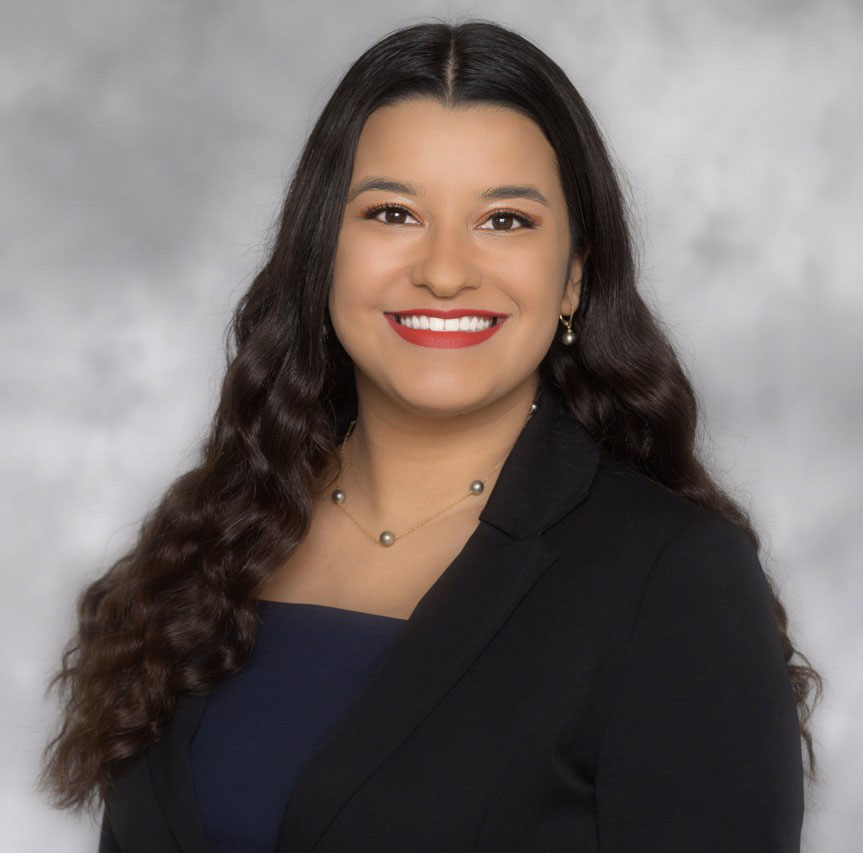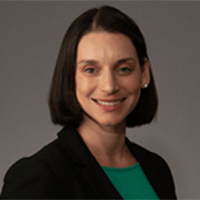Tips from the Bench: Hon. Rebecca F. Zipp

Associate Attorney at Sheppard, Mullin, Richter & Hampton LLP
On March 20, 2024, the Honorable Rebecca F. Zipp was sworn in as a judge for the San Diego County Superior Court. Governor Gavin Newsom appointed Judge Zipp to the bench on March 12, 2024. Currently, Judge Zipp presides over civil harassment and gun violence restraining orders in Department 61.
Path to the Law
Judge Zipp grew up in New Jersey and attended the University of Pennsylvania for her undergraduate degree. After college, Judge Zipp moved to New York where she taught elementary school for two years in the Bronx. While she taught during the day, Judge Zipp attended Mercy University in the evenings through the New York City Teaching Fellows Program, culminating in her earning her M.S. in Elementary Education.

“I did not always know I wanted to be an attorney,” Judge Zipp said. “I took the LSAT because my boyfriend at the time was in law school and I looked at his books and thought: ‘I could do this.’” Judge Zipp noted that she eventually married this same boyfriend, Daniel Zipp—who is also an attorney and the appellate chief at the Criminal Division of the U.S. Attorney’s Office in San Diego—and recently celebrated their 18th wedding anniversary.
In addition, Judge Zipp was also inspired by her mother, who attended law school while Judge Zipp was in middle school and high school.
“My mom always said, ‘The one thing no one can ever take away from you is your education,’” Judge Zipp said. “My mom was my inspiration to pursue my education and have my ducks all in a row at a relatively early age.”
Judge Zipp took the LSAT at the end of her first year teaching and eventually enrolled at New York University School of Law. When she entered law school, Judge Zipp knew she wanted to be a prosecutor. This idea was further cemented by speaking with various professors and by interning with the criminal prosecution clinic at the U.S. Attorney’s Office for the Southern District of New York.
After graduating law school in 2007, Judge Zipp moved to San Diego with her husband and began working as a deputy district attorney in the San Diego County District Attorney’s Office in January 2008 after passing the California Bar. After nearly twelve years as a DDA, Judge Zipp served as a Chief Deputy City Attorney at the San Diego City Attorney’s Office from 2019 to 2023. Prior to her appointment to the bench, Judge Zipp worked for over a year as counsel at Seltzer Caplan McMahon Vitek.
Transition from Advocate to Trier-of-Fact
Becoming a judge was not always on Judge Zipp’s radar. It was not until April 2022—when Judge Zipp had lunch with one of her mentors from Lawyers Club of San Diego—that Judge Zipp began thinking seriously about the application process to become a judge.
Now as a judge in San Diego Superior Court, Judge Zipp notes that she values her experiences as both a criminal prosecutor and as a private practitioner. In particular, Judge Zipp noted that “although [she] was not at [Seltzer Caplan] very long, [she] felt like it prepared [her] for life on the bench” because it helped her get acquainted more with the California Code of Civil Procedure, which she now uses on a daily basis as a judge presiding over civil cases.
Judge Zipp appreciates her new role as a judge compared to that of being an advocate. “It is different way to have a positive impact,” she said. “I’m there to treat people with dignity and make sure they feel seen in a way I could never before as an advocate. I think it can make a difference to have someone in a robe extend kindness while still maintaining authority.”
Judge Zipp said she feels lucky to be in her new position. “This is a fantastic job,” Judge Zipp said. “This Court has been so welcoming and it is a wonderful place to work. The support from the court staff and from my judicial colleagues has been amazing.”
Tips for Law Students and New Lawyers
Judge Zipp wants law students and new lawyers to know that it is okay to not always have an immediate answer to an problem and to ask for more time. “I always wanted to get everything done in a hurry—and still do—but it’s okay to slow down and say you don’t have an answer immediately,” she said. “Rather than making the most educated guess, slow down. It’s more important to get the correct result than a quick result.”
As to the best advice she ever received while in law school, Judge Zipp said to “spend your last penny on childcare.” For law students or attorneys who are parents, Judge Zipp noted that it is important to have good childcare so that you can be reliable for your clients and your employer.